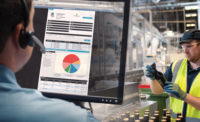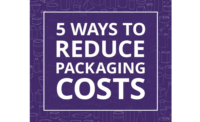A recent study revealed the discovery of microplastics found in human blood for the first time. The study found almost 80% of participants had plastic particles in their bloodstream, most likely from exposure to plastic drink bottles, food packaging and plastic bags.
Plastic is used to store, pack and transport food and drink goods — with plastic production growing by 4% each year.
The following are some things to consider to reduce the risk of microplastic contamination from food packaging:
1. Only Use Packaging for Transport and Short-Term Storing
For food transportation, plastic packaging — and there are many types and blends depending on the application — is durable and secure as it's stronger than other materials, preventing any damage during distribution and protecting it from potential contaminants. Plus, it's lightweight compared to other materials, saving energy as less fuel is used in transit, lowering emissions and distribution costs.
However, while it may look secure, some plastic containers have been in contact with BPA (Bisphenol A) — used to harden plastic. BPA is absorbed when digested, and although metabolized by the liver and excreted within 24 hours, studies suggest that prolonged exposure and higher levels of BPA have shorter mortality rates.
Instead, look to store food in reusable containers as a long-term solution, such as reclosable bags, freezer paper or aluminum foil.
Cling film is not recommended for storing food long-term but is safe to cover unfinished dishes as a short-term solution, ensuring the wrap is kept at least one inch from the surface of the food to avoid chemical migration.
2. Be Careful What You Wrap
Storing fatty or oily foods in plastics should be avoided. Many chemicals used in plastic are fat-soluble, which means wrapping and storing fatty or oily foods in plastic can cause it to leach into the foods.
Using greaseproof paper or aluminum foil on these items as a safer solution.
3. Avoid Reheating Food Packaging
When it comes to reheating food packaging, avoid heating plastic wrap in the oven or with other forms of direct heat. Unless stated on the product that it is safe for oven or microwave, it should not be heated.
Untreated plastic wrap can melt under the heat, spoiling your food and releasing chemicals into it, making it possible to ingest some.
4. Don’t Ingest Personal Care Products
Another point highlighted by the recent study suggests personal care products such as toothpaste and lip gloss may contain microplastics. The microbeads — labeled as polypropylene or polyethylene — are often added to make the product more abrasive. Some studies have found that prolonged exposure could harm human cells.



